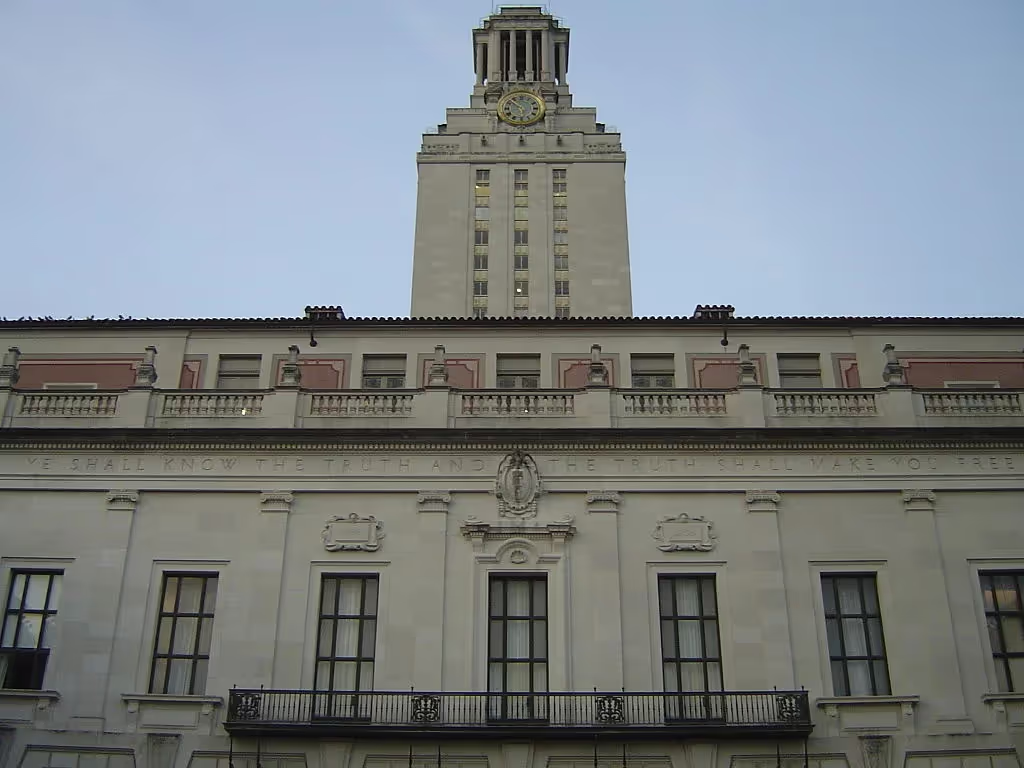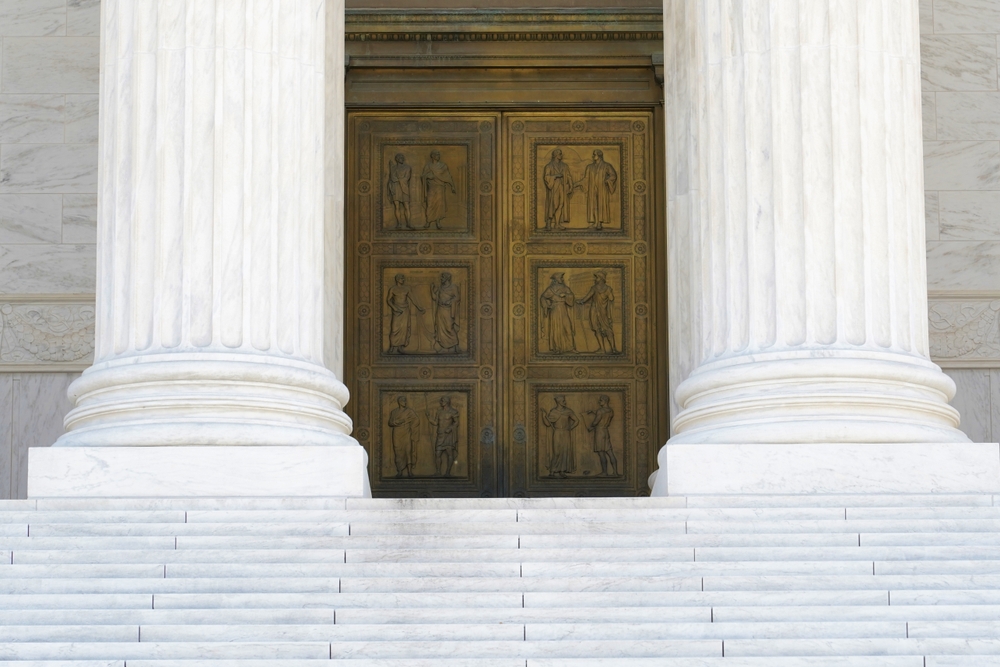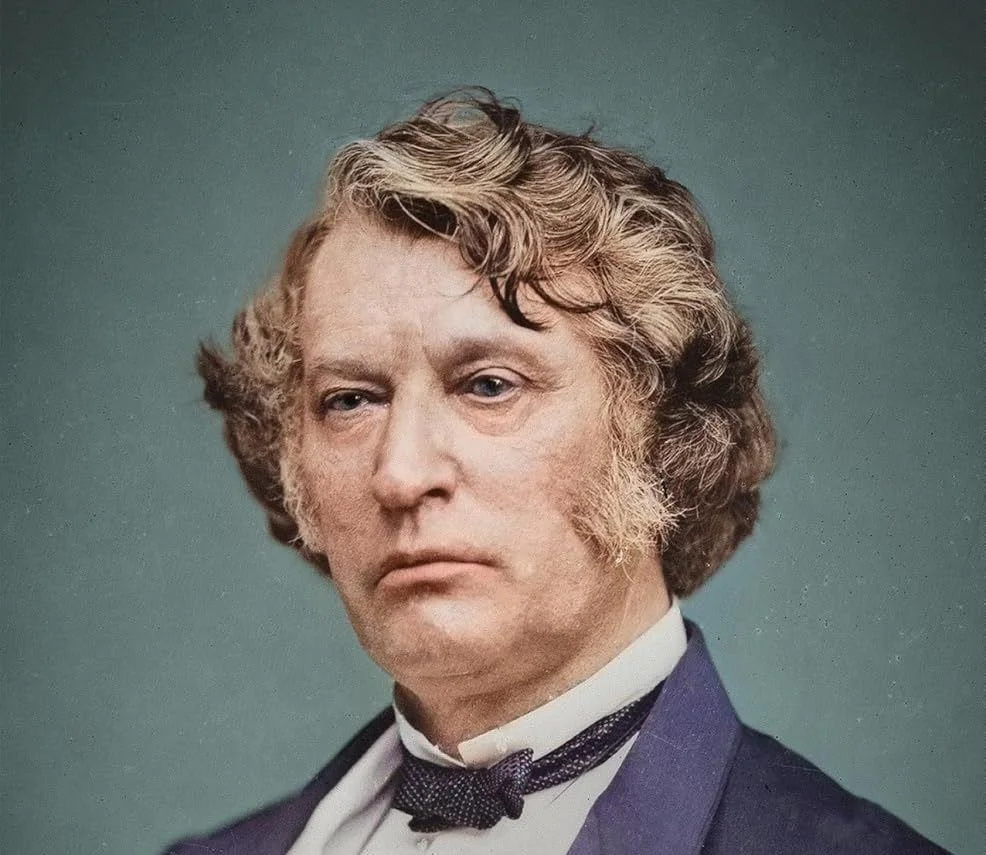
Truth and the University
When a campus “cancels” a speaker, the university has not only struck at the speaker’s right to speak, but it has denied the right of hundreds of listeners to search for the truth.
Editor's Note: David Forte responds to Hadley Arkes' lead essay "Free Speech and the American University: A Proposal."
Following a 20-day pro-Palestinian encampment, the resignation of President Claudine Gay, and reports of endemic anti-Semitism on campus, Harvard University issued a Report on the Institutional Voice of the University. “The purpose of the University is to pursue truth,” the Report began. Well and good. But Hadley Arkes retorts, “We must be clear that nothing in the search for truth entails that we recede in any way from the surety that we have with us, now as ever, the standards for judging evil ends to be truly evil.”
Harvard’s Report declares that the University “should not issue official statements about public matters that do not directly affect the university’s core function.” But Professor Arkes warns that such moral neutrality will slip “into a kind of soft relativism.”
Harvard also issued “New Rules for Campus Use,” strictly limiting the time and place and manner of on campus demonstrations, but declared, “The University must affirm, assure and protect the rights of its members to organize and join political associations, convene and conduct public meetings, publicly demonstrate and picket in orderly fashion, advocate and publicize opinion by print, sign, and voice.”
But Arkes argues that a mass protest on campus is, by its nature, adverse to the university’s mission. A protest is not a “discussion.” It is not even “the making of a substantive argument.”
Putting aside practical difficulties for the moment, the underlying principles of Professor Arkes' position have weight. His rightly focused term is “discussion,” for the nature of free speech is not, as so often has been asserted, in individual self-expression. The heart of the right of free expression is the right of the listener to hear, to consider, to deliberate, and to decide. When a campus “cancels” a speaker, the university has not only struck at the speaker’s right to speak, but it has denied the right of hundreds of listeners to search for the truth. At best, a campus demonstration makes a statement. Too often, it is a form of bullying, physical or emotional. It has no room for a counter position.
When John Milton famously objected to the licensing of the press in England, he noted that
Who kills a man kills a reasonable creature, God's image; but he who destroys a good book, kills reason itself, kills the image of God, as it were in the eye. … [A] good book is the precious life-blood of a master spirit, embalmed and treasured up on purpose to a life beyond life.
If a university preserves “a good book” so that generations later can read and learn from it, what does a political mass demonstration do but seek to shut down speech, to declare there is only one point of view to consider? Arkes concedes that such demonstrations may be “tolerated” for good reason, but we should not conflate such mass expressions with the university’s search for truth.
Arkes may be speaking in a more ancient voice than he knows.
From the time when the universities were organized in the late Middle Ages, they were places of research into ancient sources and places of vigorous debate and discourse. By Papal decree, universities were to be independent and self-governing. What might have passed as heresy in the public square were propositions or objections within the university. As Hadley Arkes would insist, the university is universe enough to contain the debate, discussion, and consideration of the most contested intellectual and political issues.
But history also informs us that mass demonstrations and even riots have been part of the university world from the start. In 1229, a student riot arose when a student did not pay his bill at a local tavern. The authorities responded with force resulting in the deaths of several students. The students went on strike for two years, after which the Papal Bull insulating the university from secular authority was issued. Things were quieter in 1245 when Thomas Aquinas arrived, and the debates began in earnest.
Like Paris, most demonstrations were about local grievances. In 1766, the Great Butter Rebellion arose at Harvard. The butter “stinketh” claimed the protestors. Things grew riotous, and half the student body was suspended. History records dozens of instances of student-organized unrest at college campuses over the next century. In the twentieth century, political protests found their way onto college campuses, culminating in the Free Speech Movement and Vietnam War protests of the 1960s.
Professor Arkes proposes that universities bring the subjects driving the protests “indoors,” so to speak, where they can be the subject of serious debate. Unfortunately, he uses the inapt example of “teach-ins” during the Vietnam era. In fact, teach-ins were not just the civilizing of the Vietnam debate. They were part of shutting the university down and were often substitutes for classes that had been cancelled under duress.
But what of the “Institutional Voice of the University?” Arkes asks, if the university would not be silent about the evil of students burning crosses on campus, why should it be shy about condemning calls for genocide even under disingenuous slogan of freedom for Palestine “from the river to the sea?”
Conservatives may retort that there was no university moral neutrality when presidents and faculty across the country accused everyone who was not anti-racist of being racist, and they meant transparently, white men, and they instituted policies in recruitment and in classroom teaching for that objective. Maybe Harvard’s promise of institutional neutrality is a real gain. But Arkes may answer, because a university was wrong in the past, does not prevent it from being right now.
But how to get to “being right now?”
The problem in enacting Hadley Arkes’s well-founded arguments is that, for some decades now, universities have been a hostile place to expressions of mutual respect and understandings of the good. As Pope St. John Paul II understood, it is ultimately the culture that drives morals. To move to a better place, the university culture must be changed. The surge of new university civic centers is the first sign of real hope for reform in a very long time. We must count favorably also Washington’s campaign against DEI and hypocrisy in university administration and faculty.
Until the university’s culture changes, we may have to channel and contain the inevitable political demonstrations as Harvard has done and be satisfied with “institutional neutrality” rather than hostility to good and valuable ideas.
Yet, at bottom, to search for the good, to debate the good, and to proclaim the good is what the university’s aspiration should be, and nothing less.
As Harvard would put it, VERITAS.
David F. Forte is Emeritus Professor of Law at Cleveland State University, and a James Wilson Institute faculty member.
Constitutionalism

Amicus Brief: Hon. William P. Barr and Hon. Michael B. Mukasey in Support of Petitioners
Former AGs Barr and Mukasey Cite Civitas in a SCOTUS Brief

Rational Judicial Review: Constitutions as Power-sharing Agreements, Secession, and the Problem of Dred Scott
Judicial review and originalism serve as valuable commitment mechanisms to enforce future compliance with a political bargain.

Supreme Court showdown exposes shaky case against birthright citizenship
Supreme Court will hear challenges to Trump's order ending birthright citizenship, testing the 14th Amendment's guarantee for babies born in America.

Slavery and the Republic
As America begins to celebrate its semiquincentennial, much ink has been spilled questioning whether that event is worth commemorating at all. Joseph Ellis’s The Great Contradiction could not be timelier.

Two Hails For The Chief’s NDA
Instead of trying to futilely plug the dam to stop leaks, the Court should release a safety valve.


.avif)










.avif)



